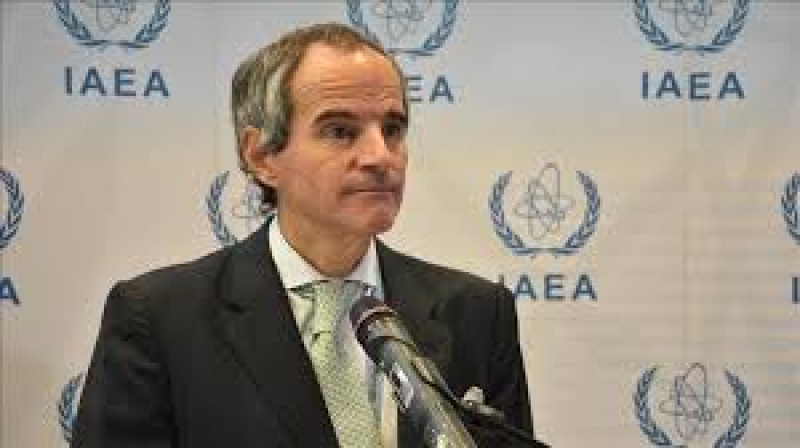- Govt Cuts ADP to Tk2 Lakh Crore Amid Fiscal Pressure |
- Home Adviser Urges Ansar Professionalism for Fair Polls |
- Net FDI in BD jumps over 200 percent in Q3 of 2025: BIDA |
- Quilt makers race against time as severe cold grips Lalmonirhat |
- Dhaka's air quality turns ‘very unhealthy’ on Monday |
IAEA Chief to Visit Iran for Key Nuclear Talks Amid Tensions

Rafael Grossi, the head of the International Atomic Energy Agency (IAEA)
Rafael Grossi, the head of the International Atomic Energy Agency (IAEA), is scheduled to travel to Tehran on Wednesday for urgent discussions regarding Iran's nuclear program. Ahead of his visit, Grossi warned that the window for diplomatic resolution is rapidly closing.
This diplomatic mission comes just days after Israel’s Defense Minister issued a stark warning, stating that Iran is now "more exposed than ever" to potential strikes on its nuclear facilities. Israel has long accused Iran of pursuing nuclear weapons under the guise of a civilian program, a claim Tehran vehemently denies.
The recent surge in hostilities between Israel and Iranian-backed groups like Hamas in Gaza and Hezbollah in Lebanon has escalated tensions across the Middle East. Israel and Iran have exchanged missile strikes this year, intensifying fears that the ongoing shadow war could spiral into a broader regional conflict.
"The margins for maneuver are beginning to shrink," Grossi told AFP in an interview before his visit, stressing the urgency of finding a diplomatic solution. He emphasized that while the IAEA has access to inspect Iran's nuclear sites, greater transparency is needed to monitor the scope and ambition of Iran's nuclear activities.
Grossi's trip comes in the wake of significant geopolitical shifts. Former U.S. President Donald Trump, who pulled out of the 2015 nuclear deal and reinstated harsh sanctions on Iran, was recently re-elected. Trump has stated that he does not wish to harm the Iranian people but insists that Iran must never acquire nuclear weapons.
The 2015 deal, brokered between Iran and world powers including the U.S., sought to limit Iran's nuclear ambitions in exchange for sanction relief. However, Trump’s 2018 withdrawal from the agreement led to the re-imposition of stringent U.S. sanctions and Iran’s gradual steps away from the deal, including enriching uranium to levels nearing 60 percent purity—far above the 3.65 percent limit established in the agreement.
Grossi, who has not visited Iran since May, will engage in high-level talks with Iranian officials to address these growing concerns. The IAEA has called for more cooperation from Tehran, particularly after Iran limited the agency’s access by disabling surveillance equipment at key nuclear sites.
While Iranian President Masoud Pezeshkian, who assumed office in July, has expressed interest in reviving the nuclear deal to ease sanctions, progress has stalled. Efforts to reanimate the agreement have faltered as Tehran has reduced its engagement with international inspectors.
Iran’s nuclear program dates back to the 1950s, when the United States and the Shah of Iran established a civil nuclear cooperation agreement. Iran ratified the Non-Proliferation Treaty (NPT) in 1970, committing to place its nuclear materials under IAEA safeguards. However, the recent escalation in Israel-Iran tensions has led some Iranian lawmakers to call for a reconsideration of Iran's nuclear stance, with some suggesting that Tehran should pursue nuclear weapons in response to Israel's military actions.
Despite this, Iran continues to publicly maintain that its nuclear activities are for peaceful purposes, and its leadership, including Supreme Leader Ayatollah Ali Khamenei, has upheld a religious edict forbidding the development of nuclear weapons.

